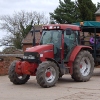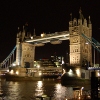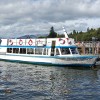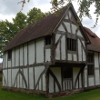Making an emergency telephone call in the UK - 999 or 112
9 October 2006
When looking at first aid, one thing that is often forgotten is the process for calling for an ambulance. Many people may think it's just a trivial dial 999, and tell them you need an ambulance and that's it. The First Aid Manual gives a whole page devoted to telephoning for help.
To make things worse there are a few myths surrounding making an emergency call. These can be distributed by hoax emails, or from word of mouth. I've even heard some of these from people that really should know better. Here are a few of the ones that I've heard, and the facts:
- 999 vs 112 In the UK the numbers 999 and 112 can be used interchangeably. 999 is the traditional UK phone number, and 112 is the standard European Union emergency number. The 112 number should work in any country that is part of the European Union, 999 will only work in the UK.
- Emergency calls are free There is no charge for making a call to an emergency number (999 or 112). It doesn't matter whether you are using a pay-phone, or a land-line, or a mobile. It doesn't matter whether you call 112 or 999. All calls to 999 and 112 are free. This is a requirement of UK law, so no operator will charge for these emergency calls.
- Emergency calls for non-English speakers The emergency service operators can engage a telephone translation service for non-English speakers. The first thing the operator will try and do is to establish the language that the person is speaking and then join in a translator. Again this works regardless of whether you dial 999 or 112.
- Mobile Phones Underground Mobile phones will not work where it is not possible to get a signal, which includes underground. There are plans to add mobile phone access on the London underground but it will take until 2008 before this is complete. See related blog: Hoax Email: Making Emergency Calls on the Underground is not possible - 112 vs 999.
- Know where you are! When making an emergency phone call you need to know where you are. If you are making the call from a land-line, and in particular using the emergency phones on the motorway, then they can trace your location from the phone, but they do not have the same accuracy with a mobile phone. If you do not know where you are, try and use a land-line phone, or find a street name. If using a mobile phone from a motorway or major A road, look for the marker signs which indicate your exact location (every 100 metres).
There is a useful The 10 Commandments of Dialling 999, which is a blog entry by a London Ambulance Service dispatcher.
Learn what to expect, before you have to make a emergency phone call.








 Days Out Diary Facebook page
Days Out Diary Facebook page @DaysOutDiary on Twitter
@DaysOutDiary on Twitter